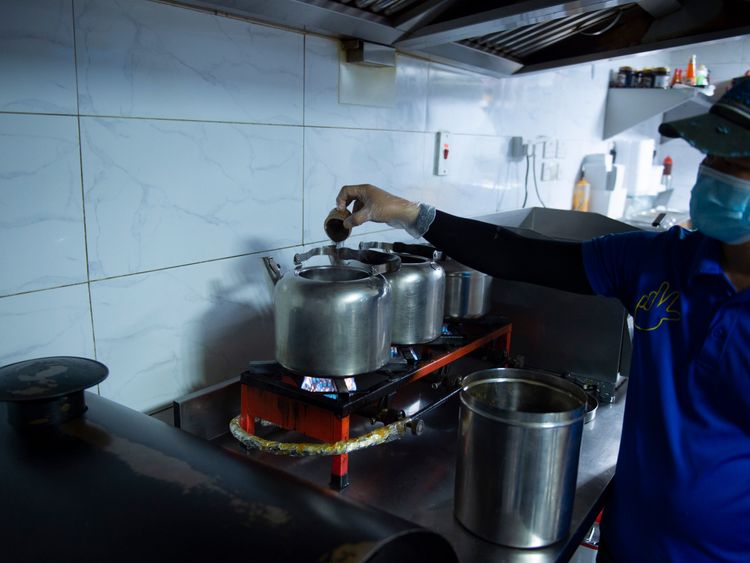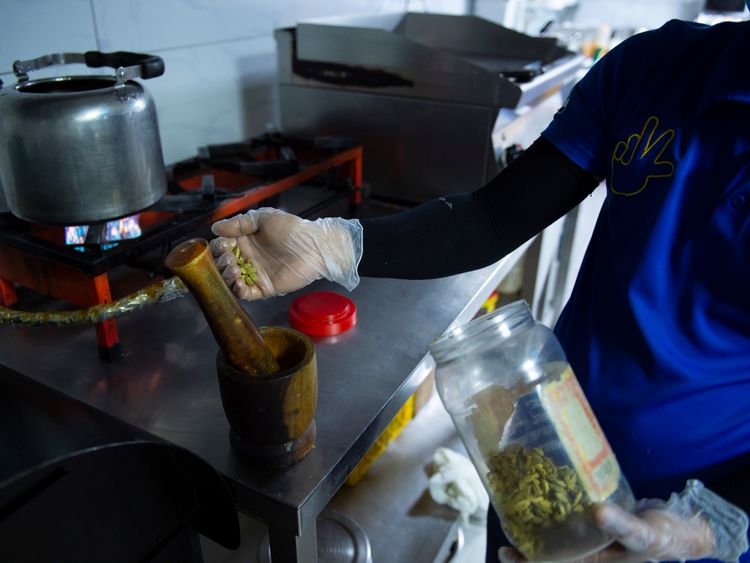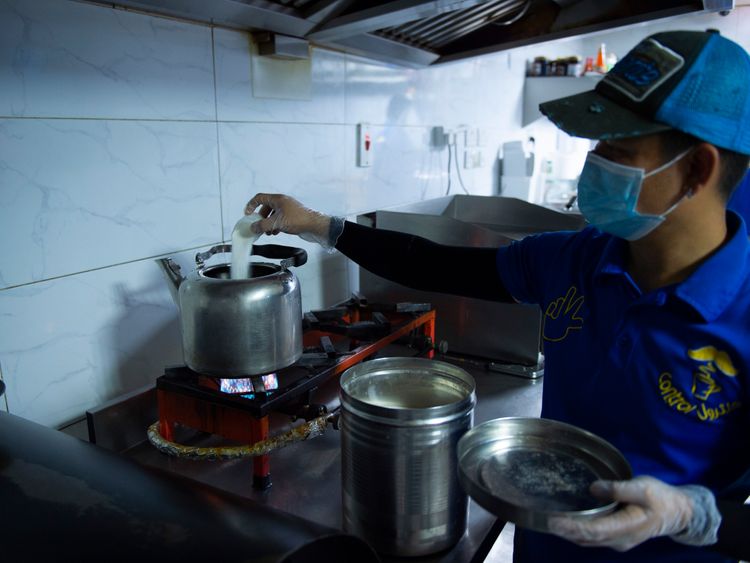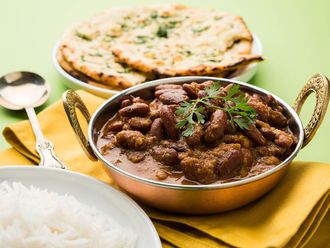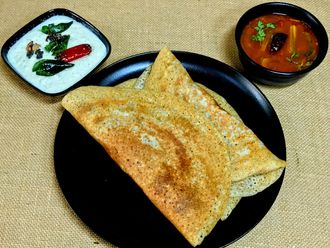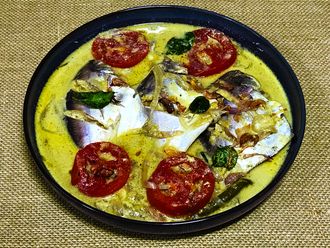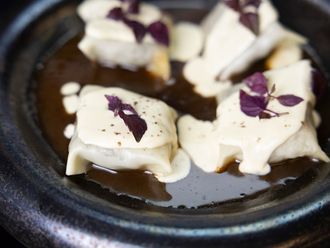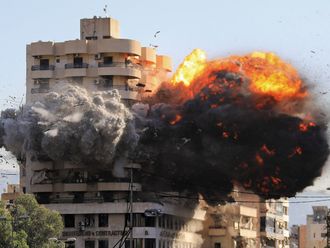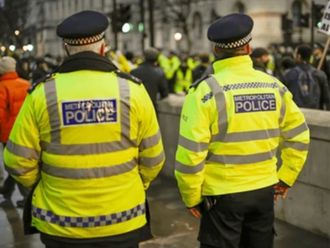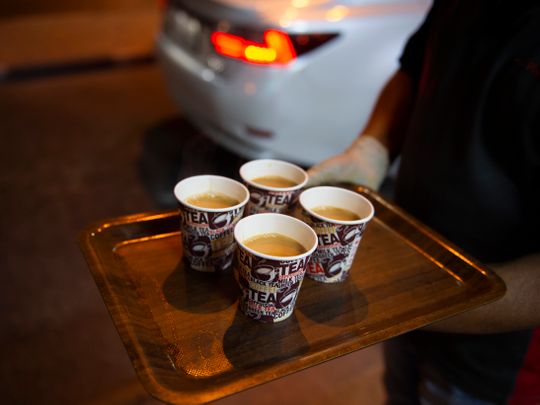
Every evening around 4pm, cars cruise down Dubai's famous Jumeirah street and wait in an orderly queue outside a tiny tea shop. No one hurries or honks. They all wait their turn patiently for one thing - the famous Dh1 karak chai from Al Farwania restaurant, a 40-year-old karak gem.
Strong, cardamom-infused tea, slowly boiled to perfection. To some, it's a much-needed warm hug at the end of the day. And to others, it is an evening ritual with friends or family.
One of the waiters scurries car to car for orders. He doesn't need a notebook to write them down, his memory is enough. Other waiters walk to and fro, from the kitchen to the eager customers, balancing cups of karak chai on their trays, it's hard to notice when the orders were passed on to the kitchen.
From residents to tourists, the teashop that began in 1981 as a small family business has served cuppas to everyone who stops by.
"It was one of the first of its kind on this street, when the shop was set up initially," Mohammed Yakoob, a waiter at Al Farwania restaurant, told the Food by Gulf News team. Yakoob, who has been working at the restaurant for the past 20 years, explained that there were hardly any buildings along Jumeirah street, at that time.
"This is probably why the teahouse became extremely popular among people in the UAE. Initially, the tea cost only 50 Fils. Later we sold it at 75 Fils," he added.
The restaurant is so popular that Emiratis and residents from other parts of the UAE often drive down to this spot to meet their friends over a warm cup of karak. However, even four decades later, the tiny teashop defies the glitz and glamour of Jumeirah street with its stylish villas and cafes, as posh cars pull up in front of it.
Faisal TK, the 32-year-old manager of the teahouse claims that customers call it "the UAE's best karak". He said: "We have customers all day. Many stop by between 6am to 9am to get a cup of tea before work. But, the main crowd begins by 4pm. And, our regular customers come as late as 11:30pm and 12am. Sometimes tourists see these long queues of cars as they pass by, and take a U-turn to come to the restaurant."
The Al Farwania tea often features on Instagram stories and Snapchat of youngsters in the UAE.
In a recent post, an Instagram user @thetenyearoldfoodie wrote: "My Nana Abu (grandfather) discovered it (Al Farwania) many years ago when he visited Dubai. Our family has been hooked on it since then, as Al Farwania has become a weekly ritual for us. During the lockdown, when we were bored or felt like going out, we would take our mugs and drink chai in the car..."
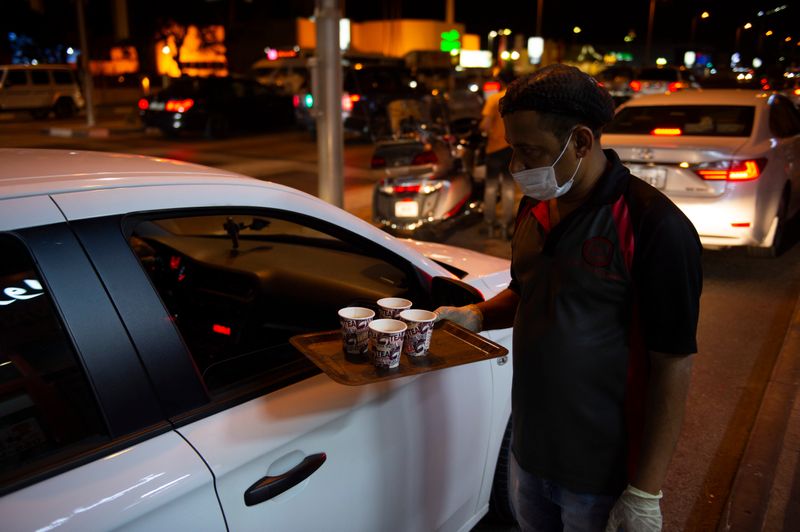
And, @karakbinkarak wrote: "The karak here is sooo delicious! It gives you warm comforting feelings in your heart."
Further down the street, a smaller teashop called Control Restaurant also gets customers lining up in cars for karak tea. Here, a small cup is sold at Dh2 and a medium cup at Dh5.
Karak chai has become a part and parcel of the UAE and Middle Eastern cultures, originating from South Asia. In fact it gets its name from the Hindi word 'kadak', which means 'strong', and chai, which means 'tea'. But, the way karak chai is prepared at cafeterias in the UAE, differs from the authentic Indian masala (spiced) chai in using fewer whole spices, strong black tea, and evaporated or normal milk and sugar.
Eric Bagos, who specialises in making tea at the restaurant, explained how he makes the grab-and-go karak chai.
Recipe for Karak chai
Servings: Makes 30-35 cups
Ingredients
- 3 litres water
- 4 cups sugar
- 10 gms cardamom
- 2 cups tea powder
- 3 cans – Rainbow catering pack/condensed milk (385 ml per can)
Method:
1) Mix water, sugar, and ground cardamom in a kettle, and place over the stove.
2) Boil for 5-6 mins.
3) Add 2 cups tea powder and boil again for 5-6 mins. It is this slow boiling that makes the tea strong.
4) Add 3 cans condensed milk pack and boil for 10 minutes.
Strain the karak chai into cups and serve steaming hot.
However, the star of the show at the Control Restaurant is another hot beverage - the 814 specialty coffee that costs Dh9. Eric Bagos explained that regular customers from all across the UAE come to drink this coffee till as late as 3am sometimes.
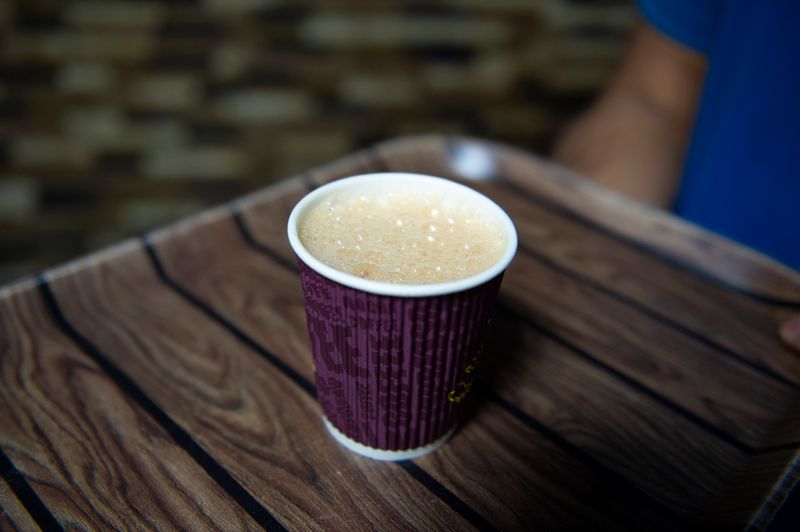
The culture of karak chai in the UAE
Karak arrived in the UAE around 1960s along with Indian expatriates, who started travelling to the Middle East in bigger numbers for better work opportunities. The local population took to this hot beverage, and started calling it karak chai or chai karak. Soon, roadside cafeterias sprang up and the drink became ingrained in UAE culture.
Nasser Buti Al Mutawa, a 34-year-old Emirati, explained how karak had become an essential part of his life. He said: "I'm a karak chai lover, and it makes my day early morning, before going to my office. Especially in winter seasons, I buy more than one cup."

I'm a karak chai lover, and it makes my day early morning, before going to my office.
Nasser added: "There are different types of karak chai depending on the ingredients. I like the special ones, which contain herbal plants like ginger, rose water, or cardamom."
Nasser also explained that it's not just at teashops that this culture is enjoyed. He added: "We enjoy trying to make karak chai ourselves when we go camping in the desert."
He shared the address of another small karak shop on Jumeirah street, which is his favourite. Nasser said: "It's called Koukh Al Shay Cafeteria, on the Second of December street in Dubai (the beginning of Jumeirah Street) in front of Etihad Museum."
Another Emirati, Majed Majjan, told Gulf News: "It's common among many of my friends, we start our morning with a cup of karak tea from small cafeterias." He also shared a clip of his morning cup of karak tea.
Meanwhile, Emirati jewellery artist and designer Azza Al Qubaisi said: "I enjoy karak on weekends, with my family. Sometimes, when I am working on an artwork and meeting my friends outdoors, we get karak chai. We share sambusas and karak."

Sometimes, when I am working on an artwork and meeting my friends outdoors, we get karak chai. We share sambusas and karak.
She explained that karak is also an important part of long outdoor trips for Emirati families. "When we go camping or a day out, when we take all our things and travel, we make some karak, and that's often the highlight of the trip," Azza said.
Another stop that Emiratis and long-time residents often make on Jumeirah road, is a small grocery store called the Al Labeeb Grocery store. No, it's not to buy household items. The storefront is an open kitchen with three giant griddles to make regag, a crispy, crepe-like Emirati delicacy.
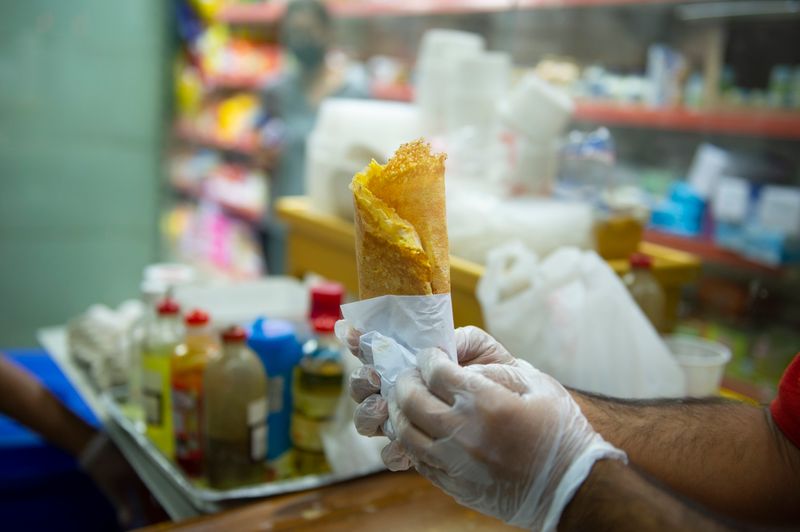
It is made using unleavened dough batter, which is spread out thin onto a super hot griddle and cooked until crispy. Regag is arguably the perfect accompaniment to the warm cup of karak. Murtaza Ali, the owner of the grocery said: "We have many customers coming for different types of regags with fillings such as cheese and spicy Oman chips or honey."
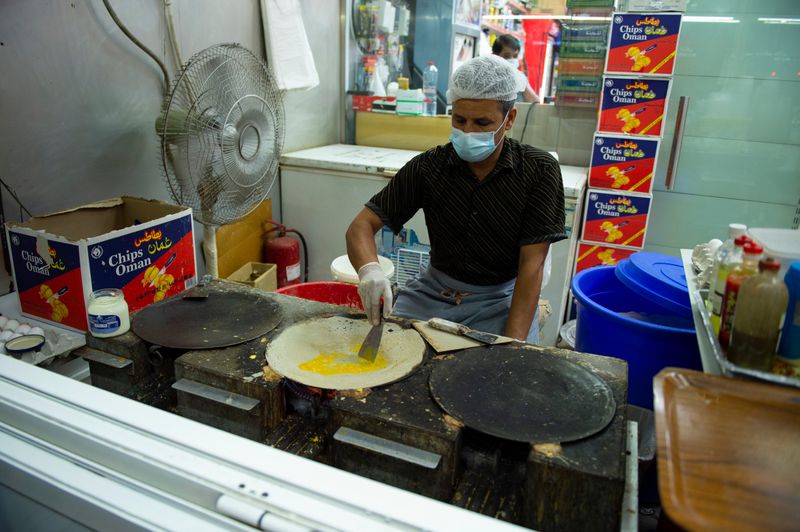
Twenty-year-old Emirati visitor Hazaa Shurafa said: "I travel from Abu Dhabi to Dubai once every week, and I have to stop for a regag here with my friends. They make it the best."
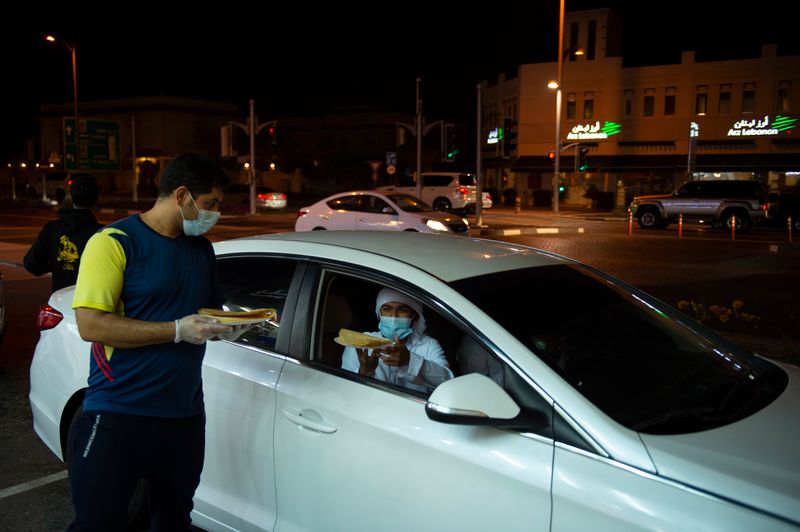
Karak chai and coffee are not the only things these restaurants sell. They sell sandwiches, snacks, and other food items too. However, if they were to sell only tea or coffee, would that be a successful business model?
Dh1 karak chai shops: A successful business model?
From the Dh1 concoction to costly luxury blends, karak tea is one of the most moving items in Dubai eateries, with prices ranging from Dh1 to a staggering Dh25. But if a shop owner were to make it their only source of income, would it succeed?
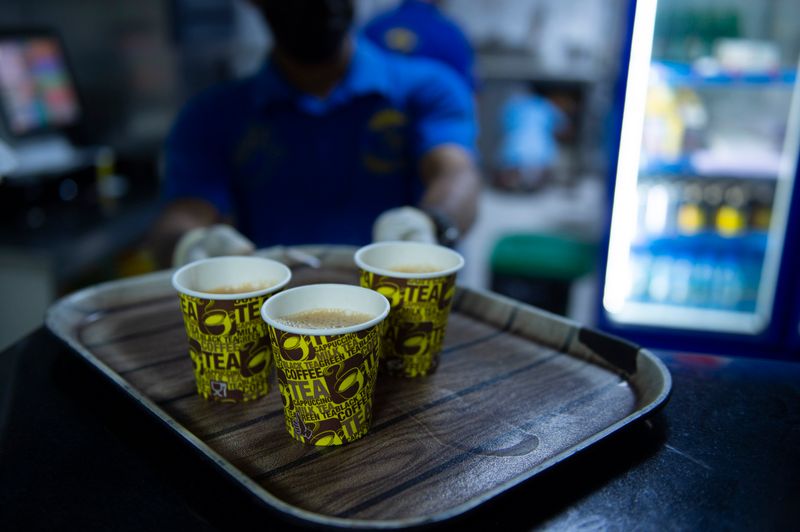
The essence of karak tea is its sweet and strong flavour, which is what makes it increasingly popular among residents. From a business standpoint, the key selling point is the fact that the demand of the underlying product is very high, with no sign of dropping – which makes it a reliable product to sell.
So, what are the operating and profit margins generated when selling just Dh1 karak ‘chai’ to its customers? It involves calculating the cost of raw materials or ingredients that go into making the tea, while comparing it with the final selling price.
Costs of making a cup of karak tea
Several Dubai-based popular café chains known for their karak tea, use between 80gm to 120gm of sugar for five litres of tea. While some use condensed milk for enhancing flavour. However, this varies between shops.
Shops add up to 1kg of sugar to 10 litres of water for brewing the karak tea with 300gm of a special mix of tea powder, with evaporated milk added separately in the cup.
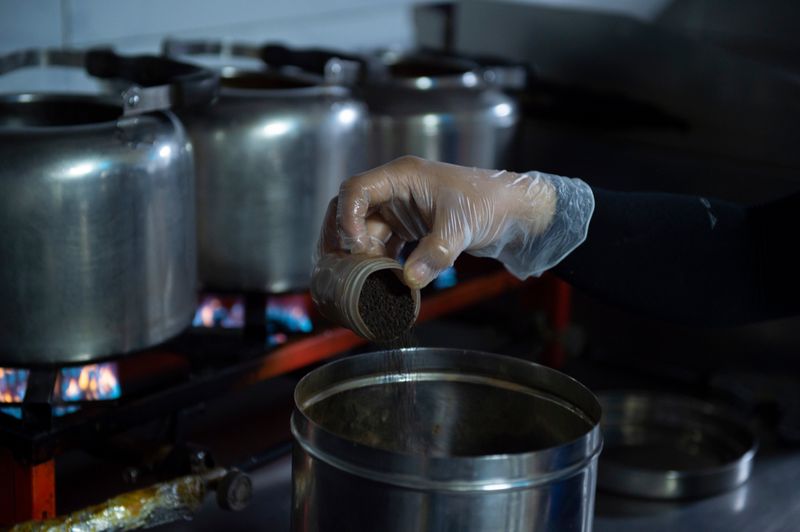
One also factors in the costs of the commonly-used instant premix tea powder, which costs between Dh21 to 25, for 200gm to 220gm of powder. For twice the cost, one can also purchase a kilogram (1,000gm) of premix powder. Condensed milk costs Dh7 for about 400gm and a kilogram of sugar costs Dh3.5.
There are outlets that give you sweeter karak in biscuit cups too. The sugar coating inside the lining of the biscuit cup makes the tea even sweeter. However, in the below cost analysis we take a look at a cup of karak tea that costs Dh1, made using 15gm of premix tea powder, 10gm of sugar, 80gm of condensed milk.
How much does a karak chai really cost?
One cup of karak tea roughly consists of 60fils worth of instant tea powder, 2fils worth of sugar, 60fils worth of evaporated milk, and the total cost of an individual cup of tea costs a little over Dh1.20. While selling it at Dh1 is at near break-even – keep in mind that’s only for a single cup of tea.
When making it in bulk, and when buying the ingredients at wholesale market price, which is availed at a steeper discount, the margins will narrow and costs will break even per cup. Also the amount of sugar that’s added varies widely, with condensed milk in itself being sweet enough. Some shops tend to add a bit of both.
Moreover, when making most teas, spices like saffron, cardamom, among others, are also added to enhance flavour – enabling the seller to increase the selling price, which in turn pads up their profit margins. Also, shops that make karak tea in bulk also use normal tea powder and milk, while doubling up on sugar, to make a profit selling them.
Is it profitable to start a tea-making business?
When making normal tea, with the usual normally priced milk, each cup of tea costs 50 to 60fils, allowing the seller to make a profit of at least 40fils per cup. While doubling up on sugar, and using full-cream milk in place of condensed milk, the cost per cup of karak chai is brought down – as has been the common practice.
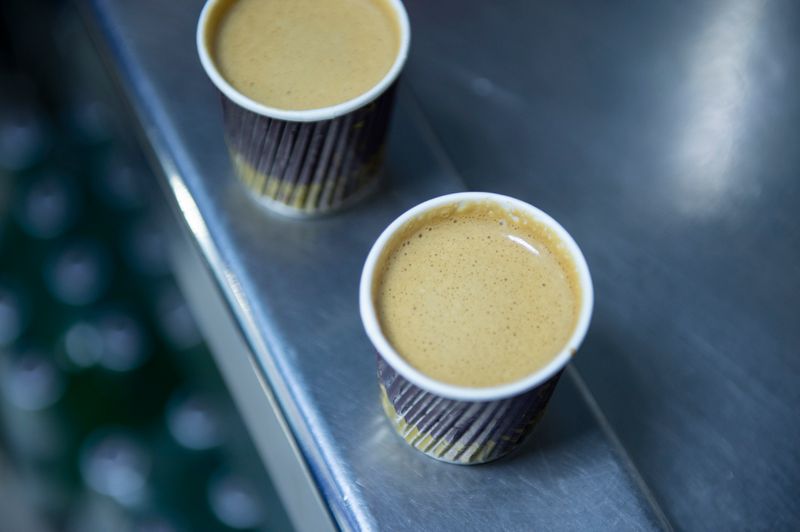
With an average tea-seller selling anywhere between 400 to even 2,500 cups of tea in a day, which varies mainly on the size of your business, demand, locality and pricing, the seller can make a profit of at least Dh400 per day, excluding the price of the ingredients.
When it comes to making karak chai, although the profit margins are lesser, when making the tea in larger quantities, your business’ bottom-line numbers increases over time – meaning more money to be taken home at the end of the day or month.
Is this a successful business model for food entrepreneurs?
Based on the above calculations and amount of ingredients, while selling one cup of karak tea at Dh1 to one customer is not profitable, the more customers you sell it to, the more your profit builds – because the cost of ingredients is scaled back, when making the tea in larger quantities.
If you are interested in setting up a small-scale tea business, it has been proven to be a successful one and will continue to be so, provided you meet the above-mentioned conditions of an ideal location and the size of the business – like if you set up the business as a tea shop or as a vendor.
Given that the business model of selling karak tea at Dh1 is one that has been and will be received well among the general UAE working public, you have the best-possible pricing in the bag. However, there are other costs, especially initial start-up investment expenses to factor in, to help evaluate whether this is a successful business model.
Factoring in all the costs involved is vital
If you want to open a basic tea shop, when it comes to location, one Dubai-based business consultant suggests you open it in one of the labour camps. A rough estimate is a market of between 500 to 1,000 people, 50 per cent of which will take tea, easily earning you Dh10,000. You can also do this in one of the free zones as well, which is an added advantage.
The investment you might need for this business will be around Dh40,000 to Dh50,000, which is very low compared to opening a café in downtown or any other popular spot. The main portion of the investment will go in rent, licensing and visa expenses are around Dh20,000 to Dh25,000.
While decoration and furnishing may not be needed much, but in case it does, it will cost you at least Dh50,000 to be competitive. However, you need to first and foremost, get your food license from the Department of Food and Safety, which can cost you Dh10,000 per year. This is apart from a trade licence, which costs just as much.
How to sell karak chai at profitable rates?
Even if in the starting weeks you may not be able to get that many customers, serving on average 500 customers a day, can earn you Dh15,000 per month.
However, while turning a profit in the first few months is evidently hard, given that most of your initial income will go into paying off any loan you took to pay for preliminary expenses, and accounted in the books as start-up costs – analysts say the business can still be profitable in the following weeks or months, when ingredients are bought in larger quantities at a discount and made using cheaper substitutes.
When buying on wholesale, a 50 kilogram bag of sugar costs about Dh110, 16 liters of condensed milk costs Dh200, and a kilo of premix powder costs Dh45. This brings the cost per cup to about 60fils, with 4fils worth of sugar, 32fils worth of full-cream milk, 23fils of normal tea powder – giving you a profit of 40fils per cup.
This article was first published on May 24, 2021.



